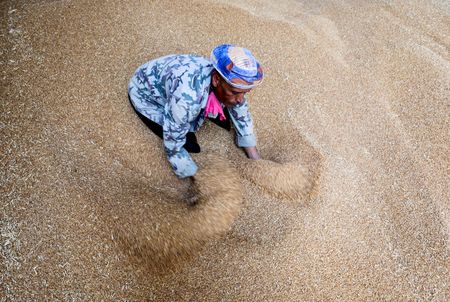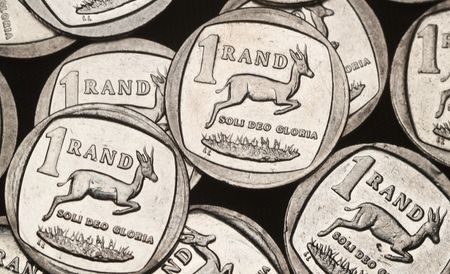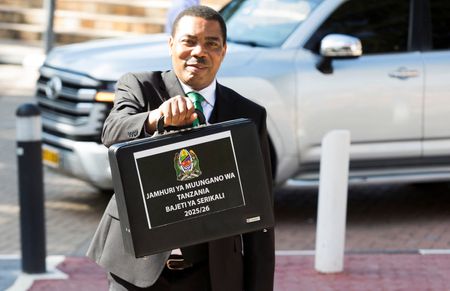By Sarah El Safty
DUBAI (Reuters) -Mounting trade tensions that earlier this year led to a drop in Egypt’s wheat imports have triggered a shake-up at the country’s new state grains buyer, as a newly appointed leader moves to restore credibility, according to trade and industry sources.
For decades, Egypt ran a transparent tender system to secure supplies for a bread subsidy programme that feeds tens of millions of people and is a cornerstone of social stability. The huge purchases make Egypt one of the world’s top wheat importers and a benchmark for global prices.
But the new military-linked agency Future of Egypt, which took over purchasing in December, ditched the formal tenders of predecessor the General Authority for Supply Commodities (GASC) in favour of informal negotiations, six traders at global suppliers of wheat and vegetable oils to Egypt told Reuters.
Delayed payments and repeated attempts by the new agency to renegotiate prices or cancel agreed contracts when global wheat and vegetable oil prices fell were widely viewed by traders as defaults—something unheard of under GASC, s ix traders said. These practices strained relationships with suppliers and were a major factor behind the sharp drop in Egypt’s wheat imports in the first half of 2025, the six traders said.
Egypt’s public tenders “long served as a barometer for global physical wheat prices,” said Alexander Karavaytsev, senior economist at the International Grains Council.
“The shift to direct negotiations under Mostakbal Misr has reduced market transparency and likely slowed dealmaking, which may have discouraged some suppliers,” he said, using the Arabic name for Future of Egypt.
In recent weeks, some global suppliers resumed sales to the new agency following the appointment of former GASC official Yousria Yusry Mohamed to oversee international purchases, three of the traders told Reuters. They said Mohamed was a respected official they dealt with frequently at GASC, bringing a level of familiarity and professionalism they were used to when dealing with the previous state agency.
Her appointment helped restore confidence, with some suppliers saying payments have since been initiated in a timely manner and contracts fulfilled, they said.
Future of Egypt, the president’s office and Egypt’s Supply Ministry did not respond to requests for comment for this story.
Global grain traders such as Cargill, ADM, Louis Dreyfus Company (LDC), Soufflet, Bunge, Olam and Solaris have been among Egypt’s major suppliers in recent years, along with Russia’s Aston and Ukraine’s Nibulon. The companies did not respond to Reuters’ requests for comment regarding the recent changes to Egypt’s national grain buyer.
WHEAT IMPORTS SLUMP
Egypt imported around 5.2 million metric tons of wheat in the first half of 2025, a quarter less than the same period last year, according to shipping and trading data reviewed by Reuters. The government’s share of those imports dropped by over half to around 1.6 million tons. This figure does not include domestic purchases, if any, made through brokers or private companies.
At one point in April, Egypt’s wheat stocks fell to a little over a month’s worth in storage, with another two months under negotiation, according to a trader and a person with direct knowledge of the matter, who reviewed internal records.
That was well below the government’s target to hold six months’ worth of grain, and also below the seven months held in mid-2024, according to previously announced government data. The buffer was restored when the local harvest arrived later in April, the two people said.
The agency had slowed imports in anticipation of this year’s large local harvest, one of the sources said. Reuters could not establish whether payment issues under Future of Egypt played a part in lower stocks.
Karavaytsev forecast Egypt’s imports would recover in the second half of the year. The country’s crop was likely to shrink next season, he said, which would be a test for the new agency.
“This would place greater emphasis on the efficiency of government purchases and private sector activities,” Karavaytsev said, adding that Egypt’s wheat stocks were expected to contract for a third successive year in 2025/26, to a multi-year low.
In the long term, Egypt wants to reduce its dependency on wheat imports but a sudden drop risks exposing the country to international price volatility, logistical disruptions, or poor harvests that could quickly strain its strategic reserves.
The country has faced persistent economic pressures in recent years, including inflation, currency volatility and rising debt. Critics say President Abdel Fattah Sisi’s growing reliance on military-run enterprises crowds out private sector investment.
PURCHASES COME TO LIGHT IN PORT
Unlike GASC, which publicly announced purchases of strategic commodities well ahead of shipment, Future of Egypt does not disclose its deals. Its purchases only come to light when vessels arrive at port, making the process less transparent, the six traders added, requesting their names be withheld to speak about commercial deals.
While striking initial contracts is often straightforward, the real challenge lies in execution — with the renegotiations, unclear commitments and delayed payments undermining trust, the six traders said.
Such issues have led to multiple disputes over the past months, they said.
One Ukrainian supplier initiated arbitration proceedings after deals collapsed due to Future of Egypt not issuing letters of credit to the supplier, two people familiar with the matter told Reuters. Letters of credit are financial guarantees provided by banks that assure sellers that payment will be received.
The Ukrainian supplier shipped around 12,000 metric tons of sunflower oil in July without Future of Egypt initiating payment – a risky move few suppliers are willing to take. Future of Egypt never finalized the payment and the cargo was later resold to another buyer at a loss, the two sources said.
The Ukrainian company initiated arbitration proceedings with one of the UK-based trade associations that handle such disputes, according to one of the sources.
Reuters could not independently verify whether the dispute progressed to formal arbitration, was resolved informally, or involved an intermediary rather than the buyer.
Future of Egypt and the Ukrainian company did not respond to requests for comment. The Federation of Oils, Seeds and Fats Associations, one of the arbitration associations, said it did not have any open cases with Future of Egypt, while the Grain and Feed Trade Association, also involved in settling arbitrations, did not respond to questions from Reuters inquiry.
In another case, a French wheat supplier threatened legal action over delayed payments and demurrage costs after Future of Egypt failed to open a letter of credit for a May shipment. The shipment loaded in July after Future of Egypt opened a letter of credit, according to three traders.
The supplier has since sold more cargoes to Future of Egypt, with traders saying that the agency was too big a client to lose.
However, another of the global suppliers said that despite the leadership change, the company was holding off on deals until it saw consistent, reliable trade backed by enforceable contracts and accountability.
(Reporting by Sarah El Safty; Additional Reporting by Mohamed Ezz; Editing by Frank Jack Daniel)











